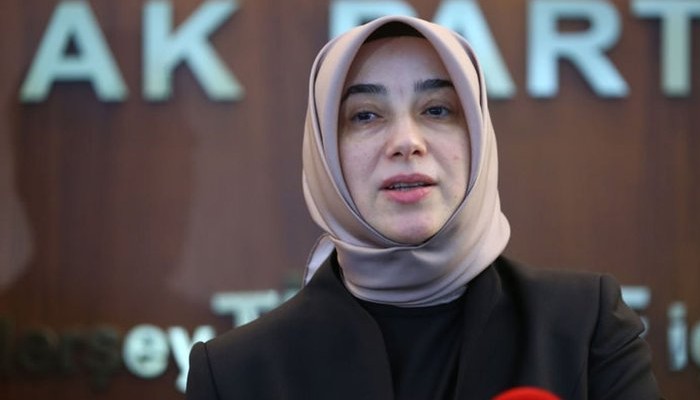In the wake of outrage on social media over strip-searches in Turkey’s prisons and detention centers, ruling Justice and Development Party (AKP) deputy group chairperson Özlem Zengin strongly denied the allegations and accused a deputy who brought them to the floor of parliament of terrorizing the legislature.
Pro-Kurdish Peoples’ Democratic Party (HDP) deputy Ömer Faruk Gergerlioğlu, also a prominent human rights activist, has been raising claims in parliament about strip-searches, saying the AKP government, which came to power demanding freedom for Muslim women to wear headscarves, is now telling women to take off their underwear.
“I have never believed in the existence of strip-searches in Turkey. There simply is no such thing,” Zengin said in an interview with Euronews Turkish service on Thursday.
A social media campaign denouncing strip-searches has been ongoing on Twitter, with many people, women as well as men, relating experiences of strip-searches during detention or imprisonment.
“Don’t stay silent against strip-search” was widely shared with the Turkish hashtag #CiplakAramayaSessizKalma by activists and women who were subjected to harassment in prisons or police custody. The social media campaign was launched to raise awareness about increasing reports of sexual violence in prisons towards inmates, detainees and also inmates’ family members.
Zengin said Interior Minister Süleyman Soylu has already responded to the allegations in parliament, accusing Gergerlioğlu of using “Fetö” tactics and terrorizing the parliament, by raising such claims.
Fetö is a term coined by the Turkish government to refer to the faith-based Gülen movement as a terrorist organization as the AKP government accuses the movement of masterminding a failed coup in Turkey. The movement strongly denies any involvement in the failed coup and any acts of terrorism.
“How on earth could this happen? And they are talking about religious women [as having been subjected to strip-searches]? I’m a person who has devoted her entire life to women’s rights. Can we tolerate the search of a woman in such a way? There must be some reason,” said Zengin.
Since the coup attempt, followers of the Gülen movement have been the subjects of a massive crackdown in Turkey, with the Turkish government and pro-government media outlets demonizing its members.
According to a statement from Turkish Interior Minister Soylu on Nov. 26, a total of 292,000 people have been detained while 96,000 others have been jailed due to alleged links to the Gülen movement since the failed coup. The minister said there are currently 25,655 people in Turkey’s prisons who were jailed due to ties to the Gülen movement.
The women who were subjected to strip-searches are mostly those who have been detained or arrested on charges of terrorism due to their alleged affiliation with the Gülen movement. They include teachers, doctors and housewives who worked at Gülen-linked organizations or subscribed to a newspaper connected to the movement or made donations to a Gülen-affiliated relief organization, which are all considered evidence of Gülen movement membership, hence terrorism, by Turkish authorities.
Gergerlioğlu frequently raises the human rights violations experienced by various groups.
The most recent report of a strip-search he brought to public attention took place in the Aegean province of Uşak, where a group of female students who were detained due to alleged links to the Gülen movement were strip-searched before admission to a detention facility in late August.
Gergerlioğlu said the young women were still psychologically scarred from the experience as they were subjected to humiliating strip-searches during which the guards were laughing at them.
Since Zengin’s denial of strip-searches in Turkey’s prisons and detention centers, more and more women have shared videos on social media in which they related their experiences of strip-searches and how difficult it was for them to live with the trauma they inflicted.
